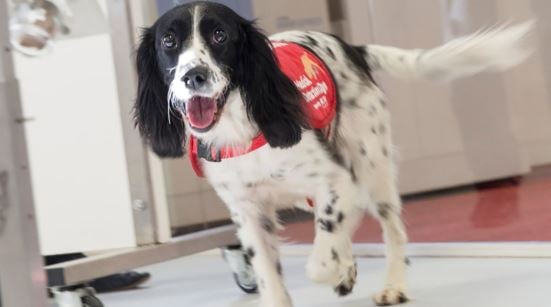A new study has revealed that sniff dogs could be trained to detect malaria in people infected with the disease.
According to the research by Durham University, The Gambia, the dogs could detect malaria even if infected persons are yet to show symptoms.
The research involved the use of nylon socks to collect foot odour samples from children aged five to 14 in the Upper River Region of the West African country.
A total of 175 sock samples were tested, including those of 30 malaria-positive children and 145 from uninfected children.
The samples were then transported to Britain where dogs were trained to distinguish between the scent of children infected with malaria parasites and those uninfected.
According to the researchers, the dogs were able to correctly identify 70 percent of the malaria-infected samples and 90 per cent of the samples without malaria parasites.
“While our findings are at an early stage, in principle we have shown that dogs could be trained to detect malaria-infected people by their odour with a credible degree of accuracy,” said lead researcher Steven Lindsay.
The study, presented Monday at the American Society of Tropical Medicine and Hygiene Annual Meeting in US, could potentially lead to the first rapid and non-invasive test for malaria.
The researchers believe that artificial odour sensors might be developed in the future to detect malaria parasites, but until then, trained dogs could be a useful alternative at ports of entry.
Copyright 2025 TheCable. All rights reserved. This material, and other digital content on this website, may not be reproduced, published, broadcast, rewritten or redistributed in whole or in part without prior express written permission from TheCable.
Follow us on twitter @Thecablestyle

